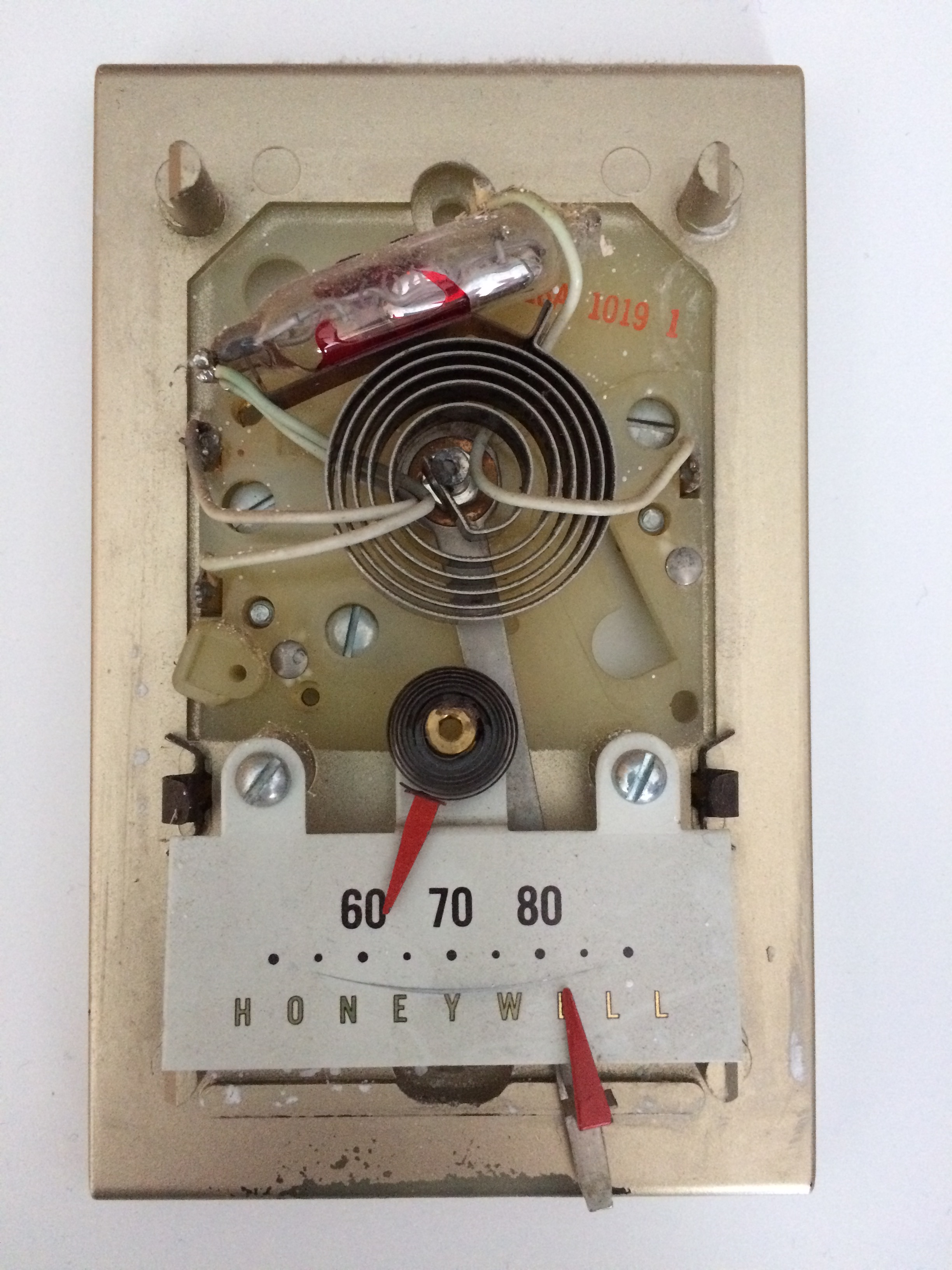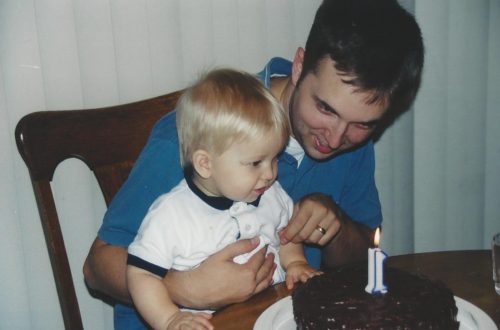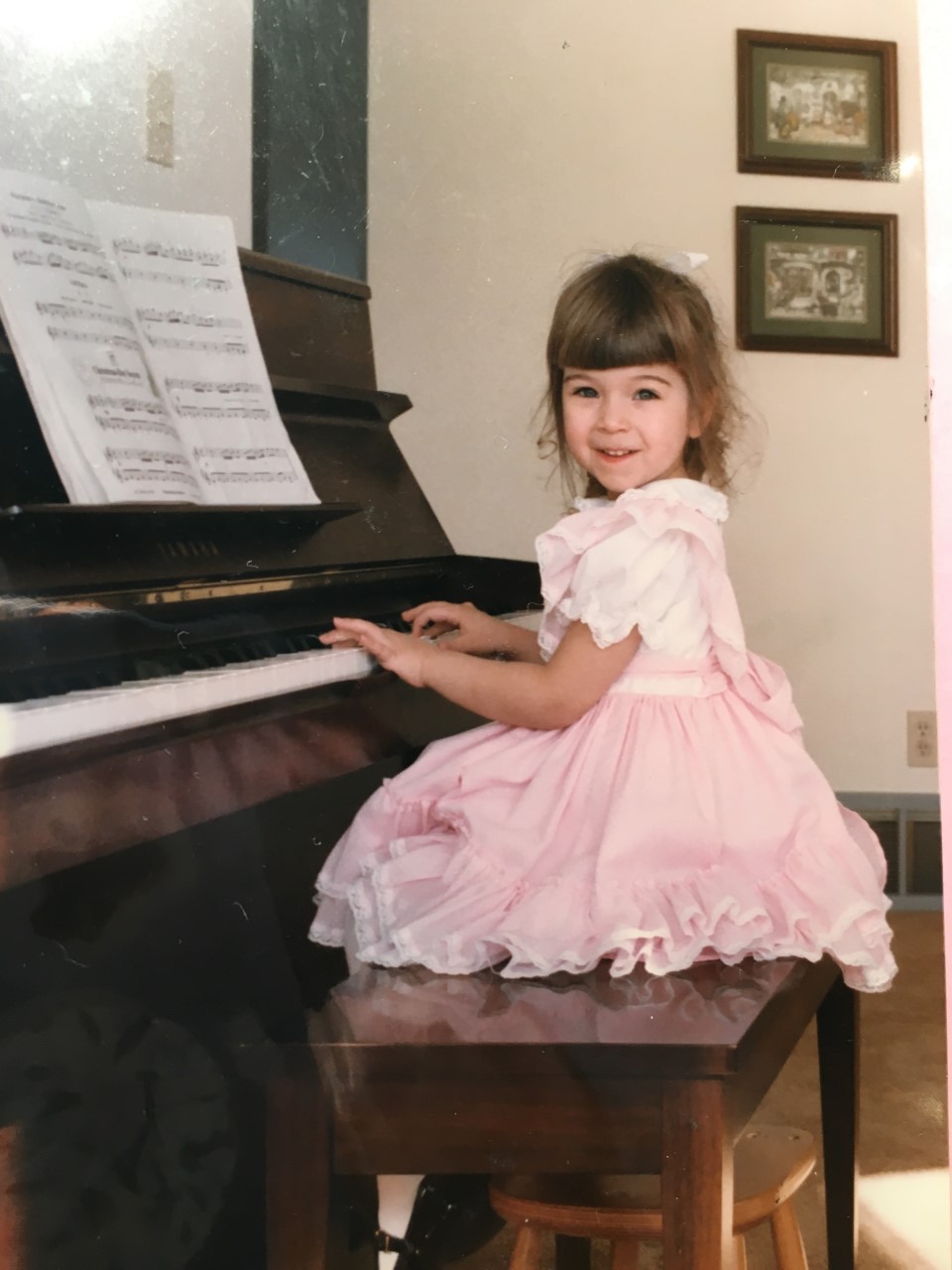
Ave Verum Corpus
When I was about eight or nine, I remember standing in the middle of my classroom choir on our first stop of our little elementary school musical tour, wanting to crawl in a corner and hide. I knew every single note of the song we were about to sing, but I didn’t know any of the Latin besides the first three words: Ave Verum Corpus.
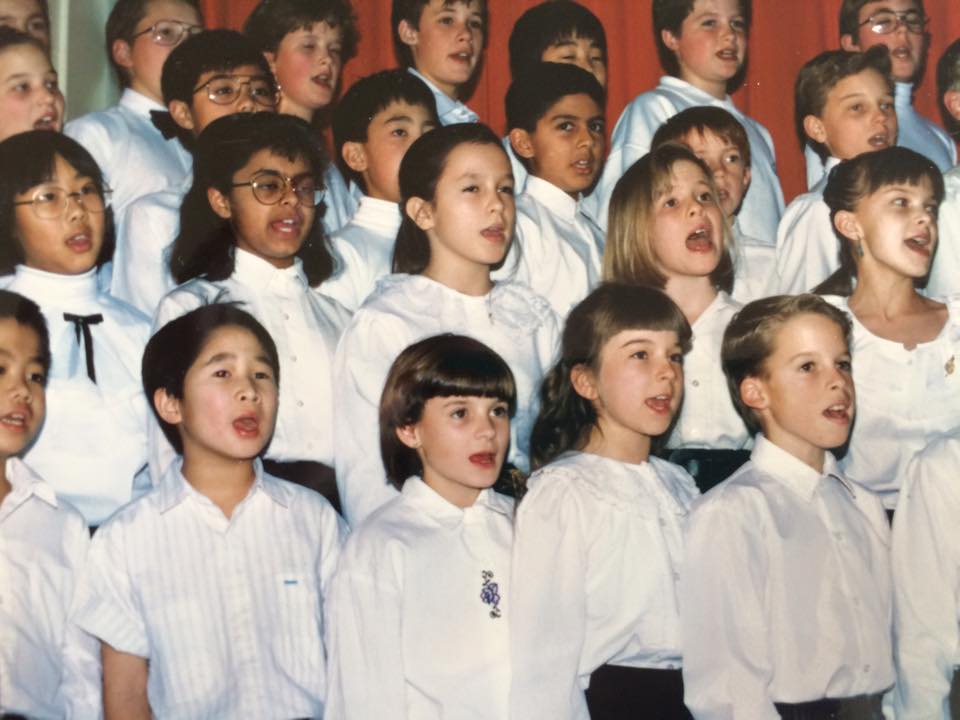
Being good little Canadian kids, this was about the same time we were also learning French. Boy did I love French–I was really, really good at French.
I was the master of the weekly French dictee.
Not only was I really good at learning language, but I was really good at learning music. I had started piano lessons when I was four years old and had competed in the Kiwanis music festival for years.
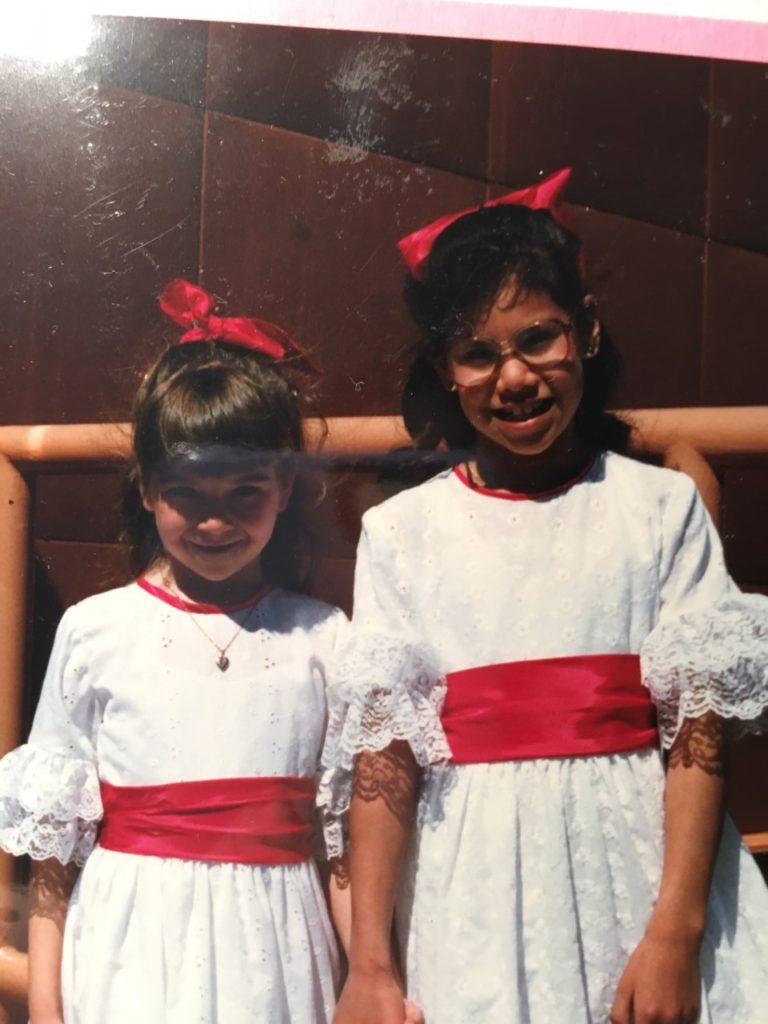
But there I was with my fellow classmates, in front of a crowd, without knowing a lick of Latin when everyone else seemed to know all the words, and I felt like the biggest impostor. As my classmates sang the haunting Mozart melody, I kept my eyes fixed on our music teacher, and moved my mouth without making a sound. I was terrified to look the audience. I knew they could see right through me and my fakery–I lip synced the entire song.
And it was all because of piano.
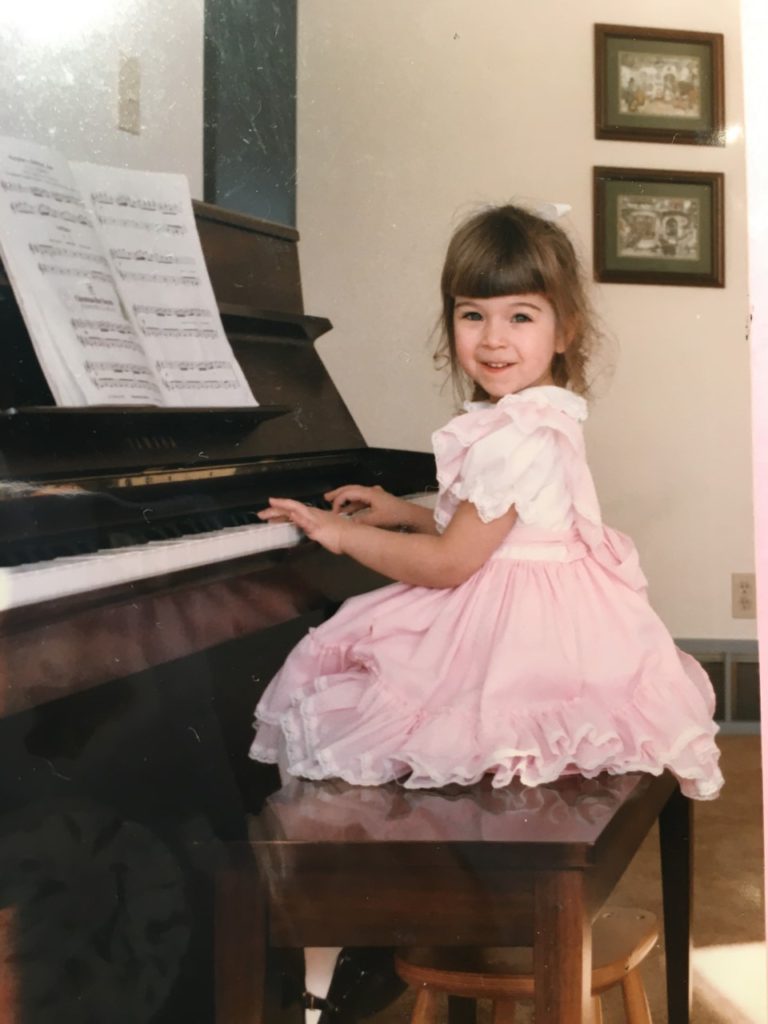
Once a week, during the school year, my mum picked me up in the middle of the day, to take me to piano lessons. It was about a 15 minute drive from the school to my piano teacher’s house, a 30 minute lesson, and a 15 minute drive from school. My piano teacher, like the dentist, only took appointments during the day. She could make a ridiculous request like that because she was one of the few Suzuki piano teachers in Edmonton. I’m sure my mum did her best to make sure I missed the least amount of class time as possible. I was also a pretty good student, so the disruption once a week out of my classroom routine didn’t really affect me. Except for the Ave Verum Corpus year. That year my piano lesson was during my music period.
I remember being in the classroom for part of the music instruction. Enough to pick up a phrase or two, but my exit or entrance (I can’t remember which) to the class in medius res was so disorienting I wasn’t able to put all of it together–at least in time for the performance.
I haven’t thought about this experience for years–in fact, it was listening to classical NPR yesterday and hearing those first four measures of Ave Verum Corpus fill my car triggered that deeply buried memory. I thought of J–J has been pulled out of a classroom daily, weekly out of his classroom since his early intervention preschool years–to receive one-on-one speech or occupational therapy. This afternoon, I’m going to pull him out of Biology 10 minutes early, like I do every Monday, to take him to his visual therapy appointment. Because of his learning disabilities, because of his anxiety, because of the frequency of his individual therapy, I’m pretty darn sure that J has that Ave Verum Corpus disorientation every time he leaves or enters his classroom. I’m pretty sure every single kid who gets pulled out of the classroom for extra reading help, math help, or therapy of some kind has that disorientation. That feeling of being an impostor when they return to the classroom. It’s stressful. You feel disconnected with your peers. You feel so behind everyone else.
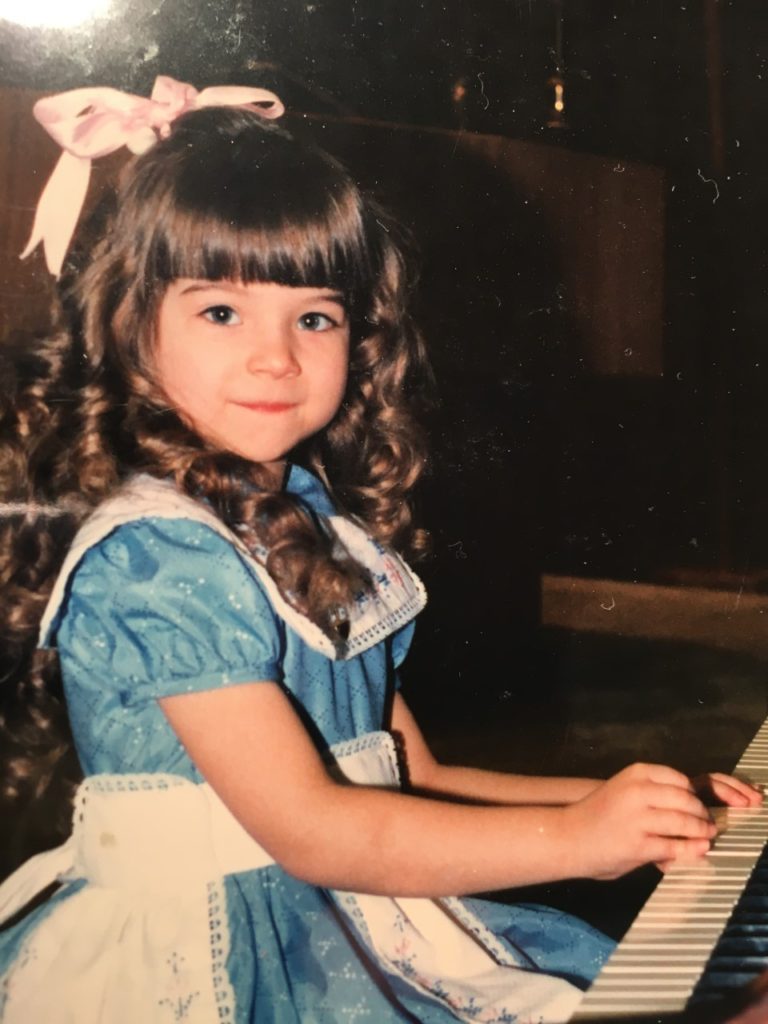
Was my weekly, out-of-school piano lesson worth it? I took lessons until I was 14 and then quit–by then the practicing and lessons and responsibilities was competing with my school and preteen experiences and lost. I didn’t become a world famous pianist. I didn’t major in music in university. I didn’t even minor in it.
But I took band and orchestra in junior high and high school. I dabbled in music classes in university. Now I play almost every day–mostly for fun, sometimes for performance or as an accompanist for church. If you asked me if the thousands of dollars my parents spent on my piano education was worth it, I’d say absolutely yes.
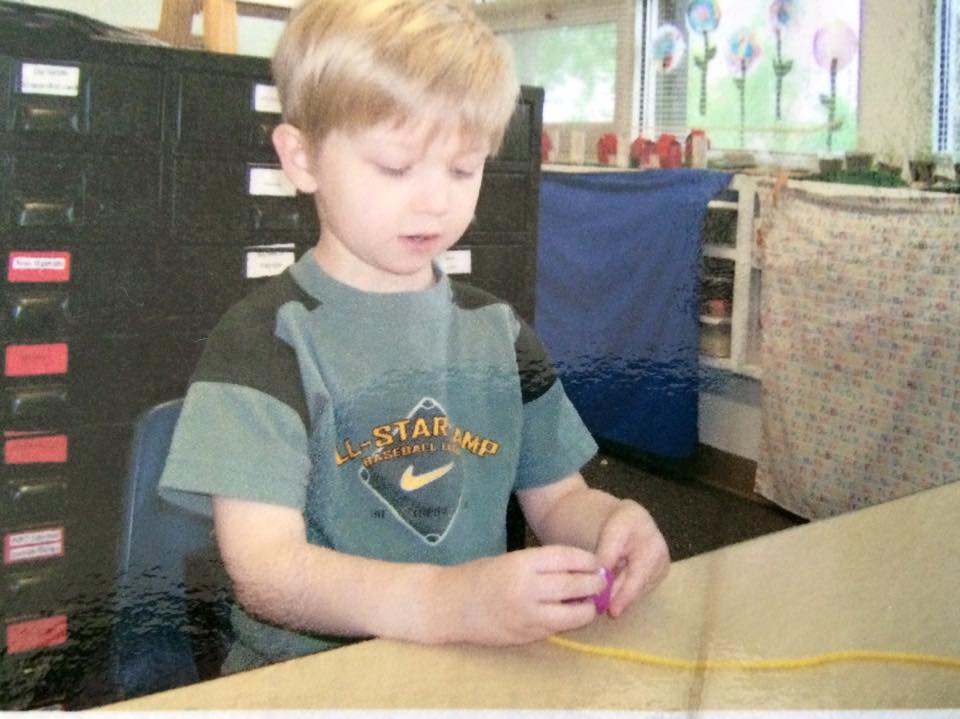
Will all of J’s classroom interruptions for speech and OT and visual therapy be worth it? I hope so. He hasn’t been “cured” from his speech problems, he still is very uncoordinated, he still has poor visual memory, but he’s functioning far better if he never had those lessons. I read so often, especially in the media, the debate over expensive therapies (visual therapy being one of them) and results–often parents go all in thinking that their child will be cured of their autism.

But I think these therapies, are like piano lessons and braces–which makes it harder to feel like we’re making the perfect choice. We spend thousands of dollars on our kids–sometimes pulling them out of school for their appointments–to help perfect them. There isn’t going to be an all-out cure. It’s very rare that we all go on to be world-famous athletes or musicians. When we get to our 30s and 40s, even those braces our parents paid thousands of dollars for become somewhat obsolete. Our bottom teeth crowd. Our teeth shift. So if we’re expecting perfect, permanent results for the sacrifice of time and money we put into our kids, we’re going to be royally disappointed.
It’s such a hard choice to make as a parent. How much do you enrich your child’s life? How much do you interrupt your child’s life for that enrichment? And if your child is struggling academically, how much do you pull for that enrichment and therapy? It’s that catch 22 of raising a special needs child. They have a hard time participating because they’re behind in some way, so you pull them out to help them catch up, only to send them back into the classroom where they’re behind once again because they’ve missed that time in the classroom.
I guess there’s no right answer.



